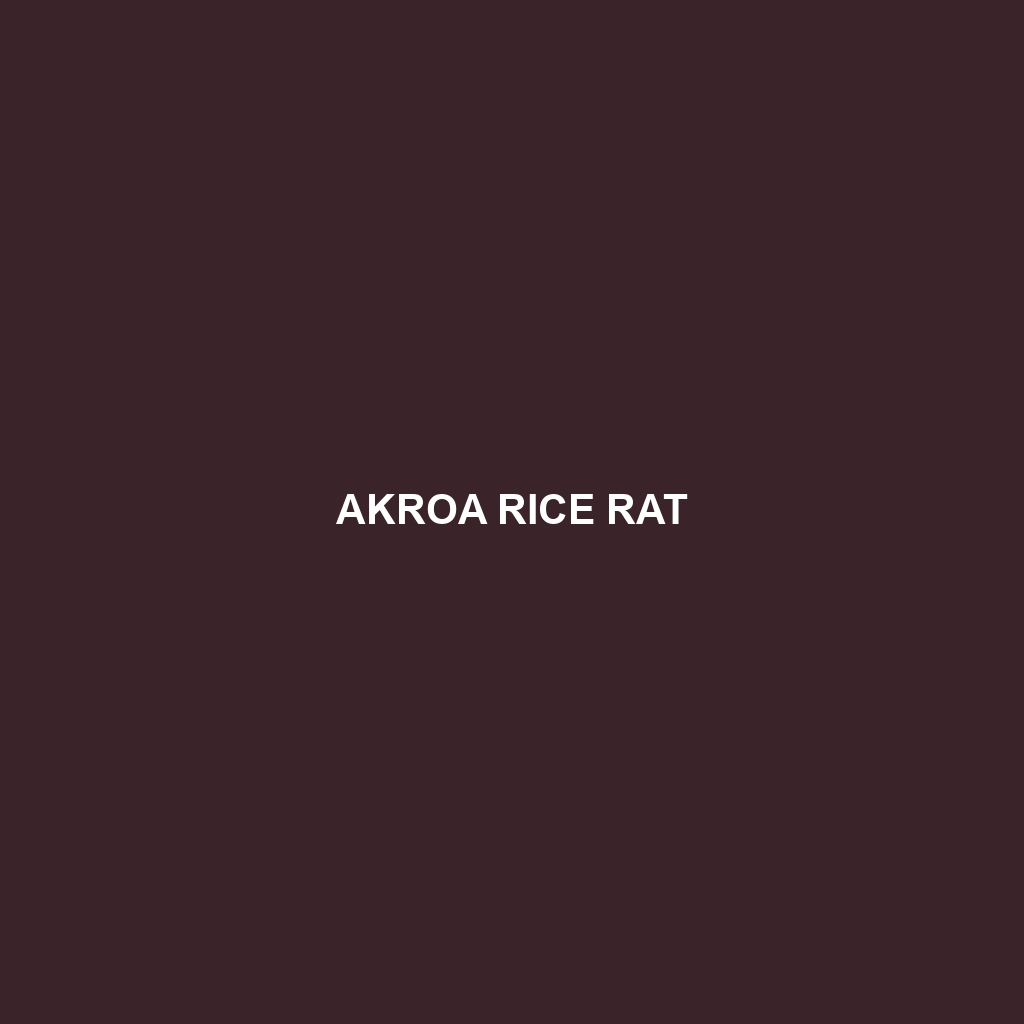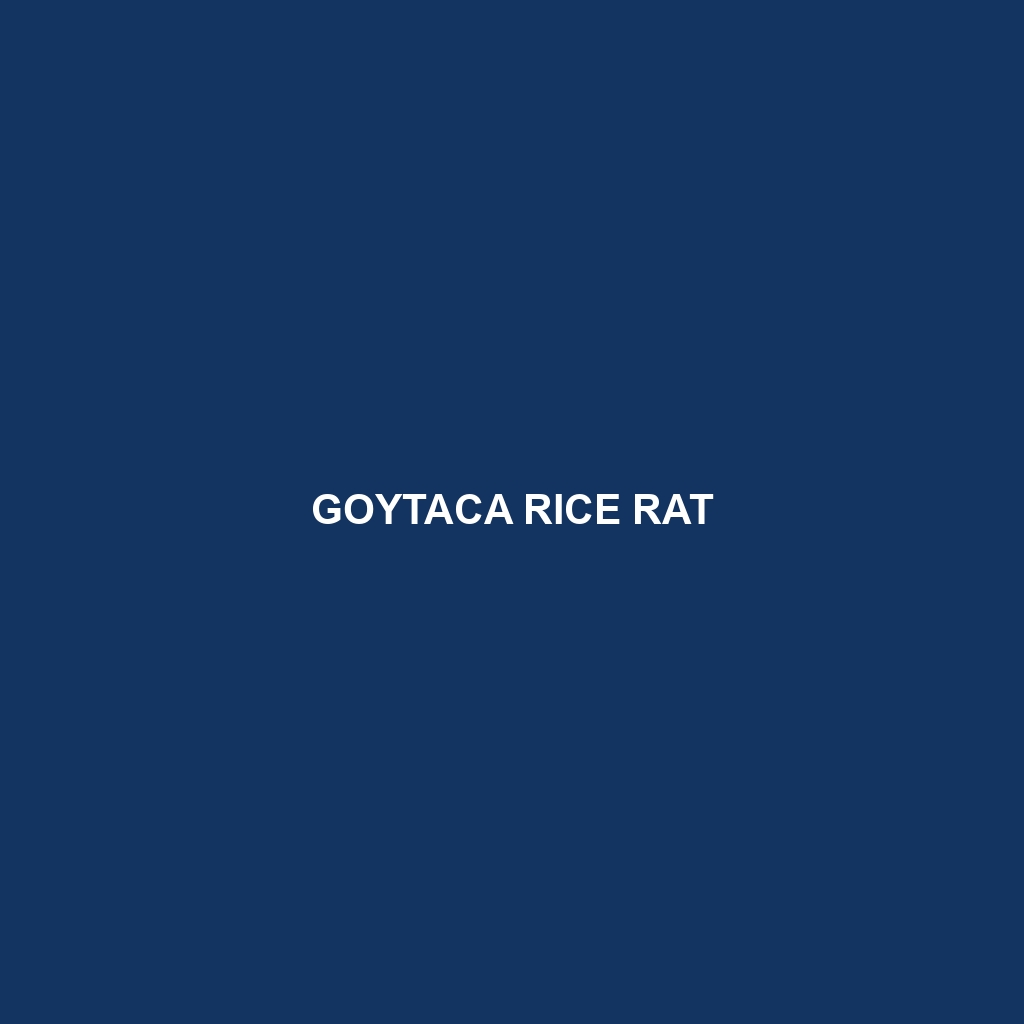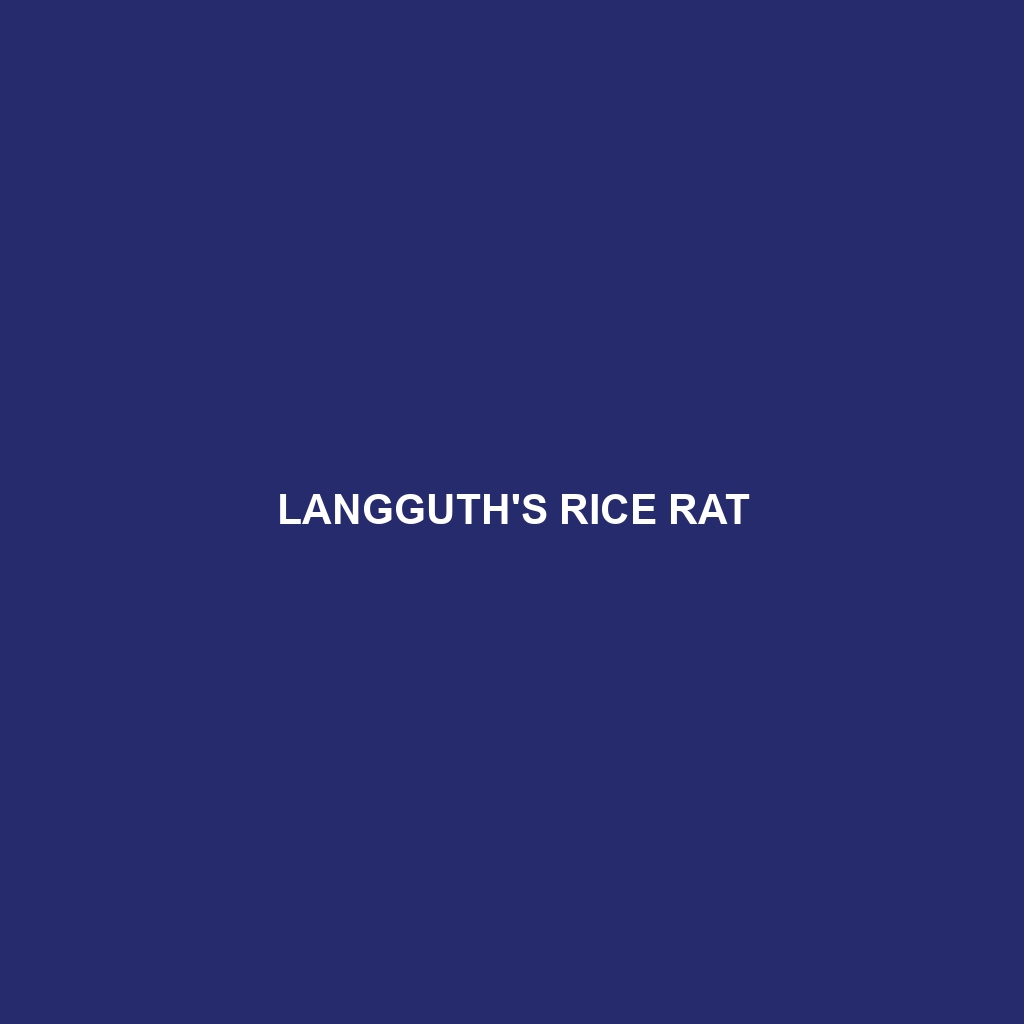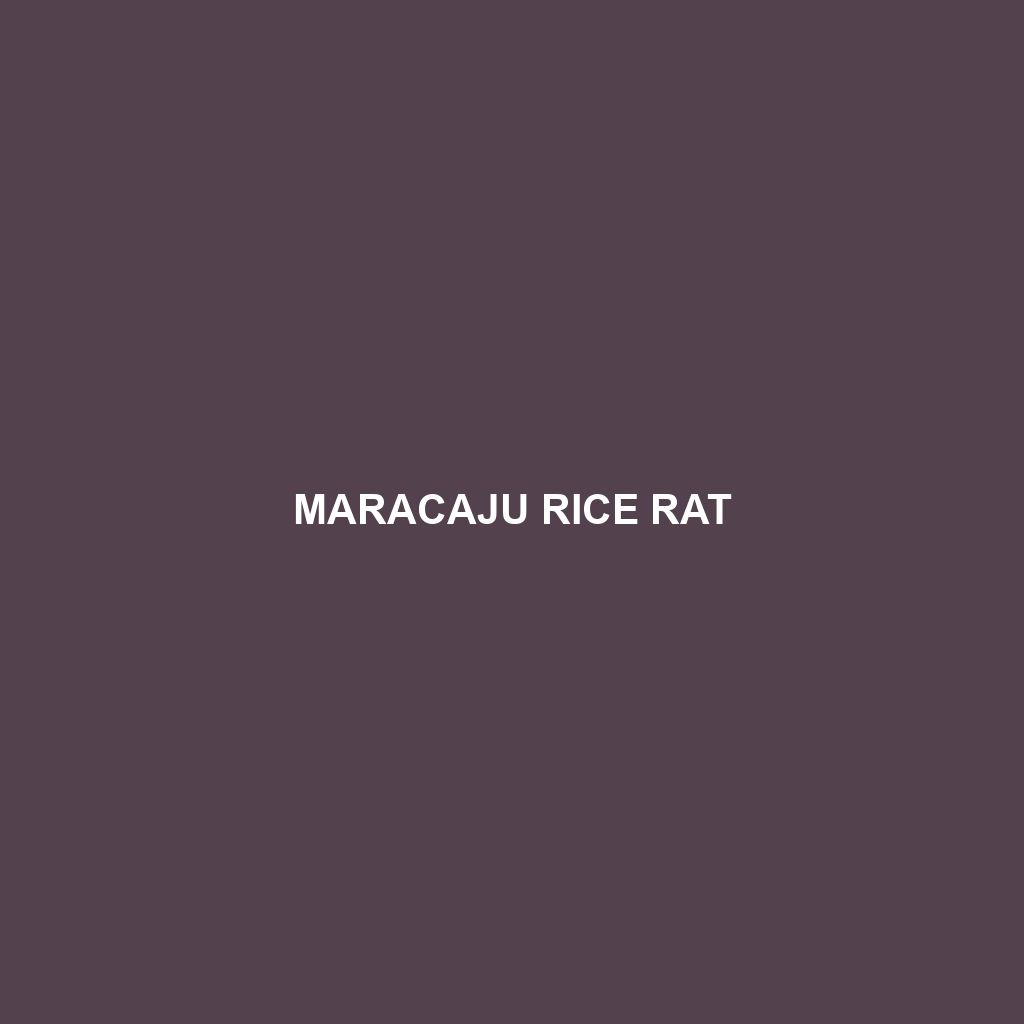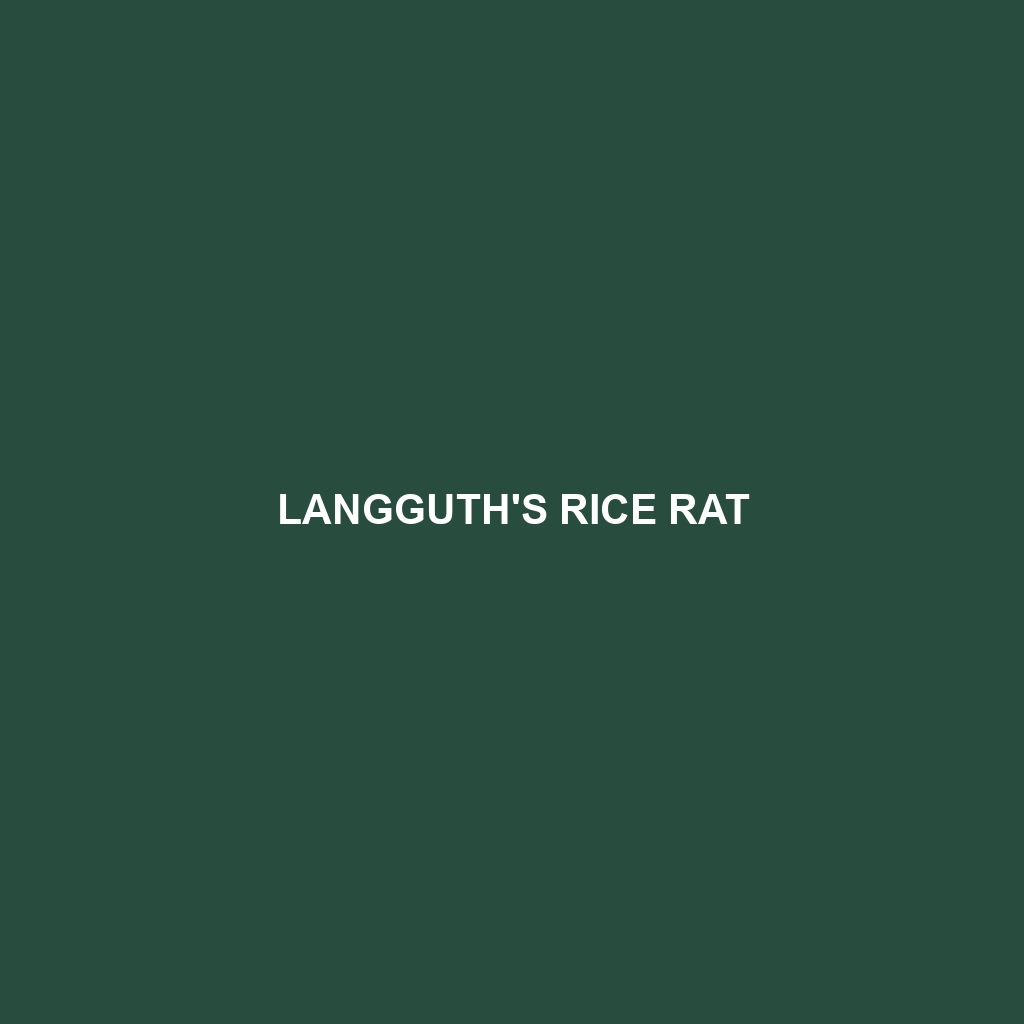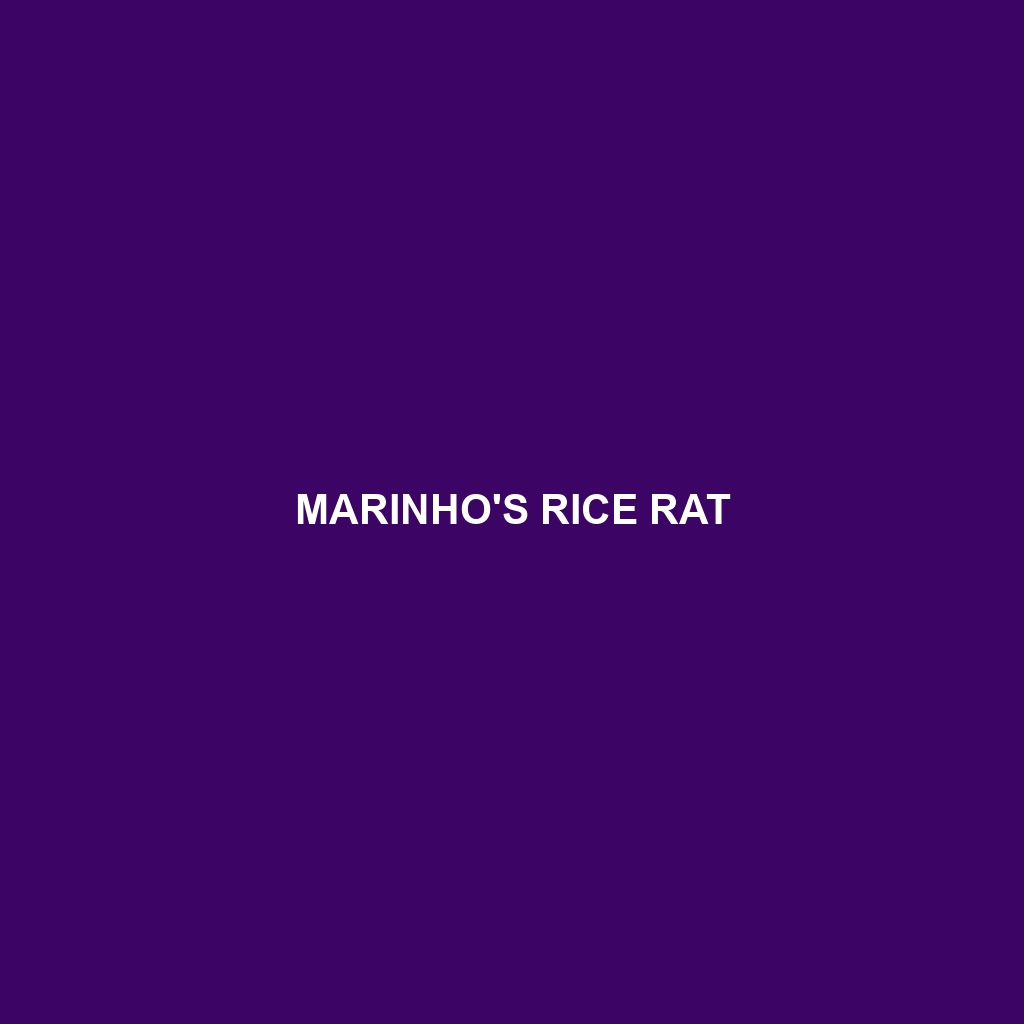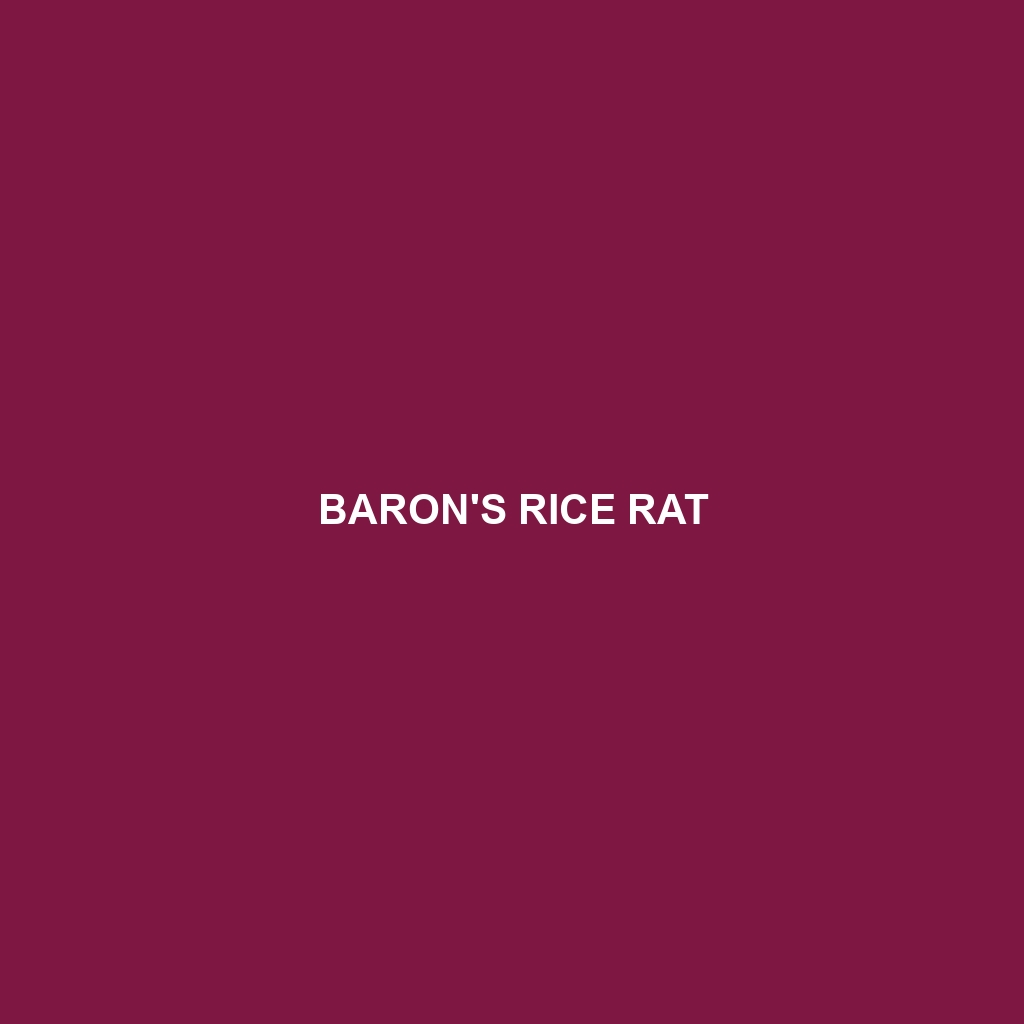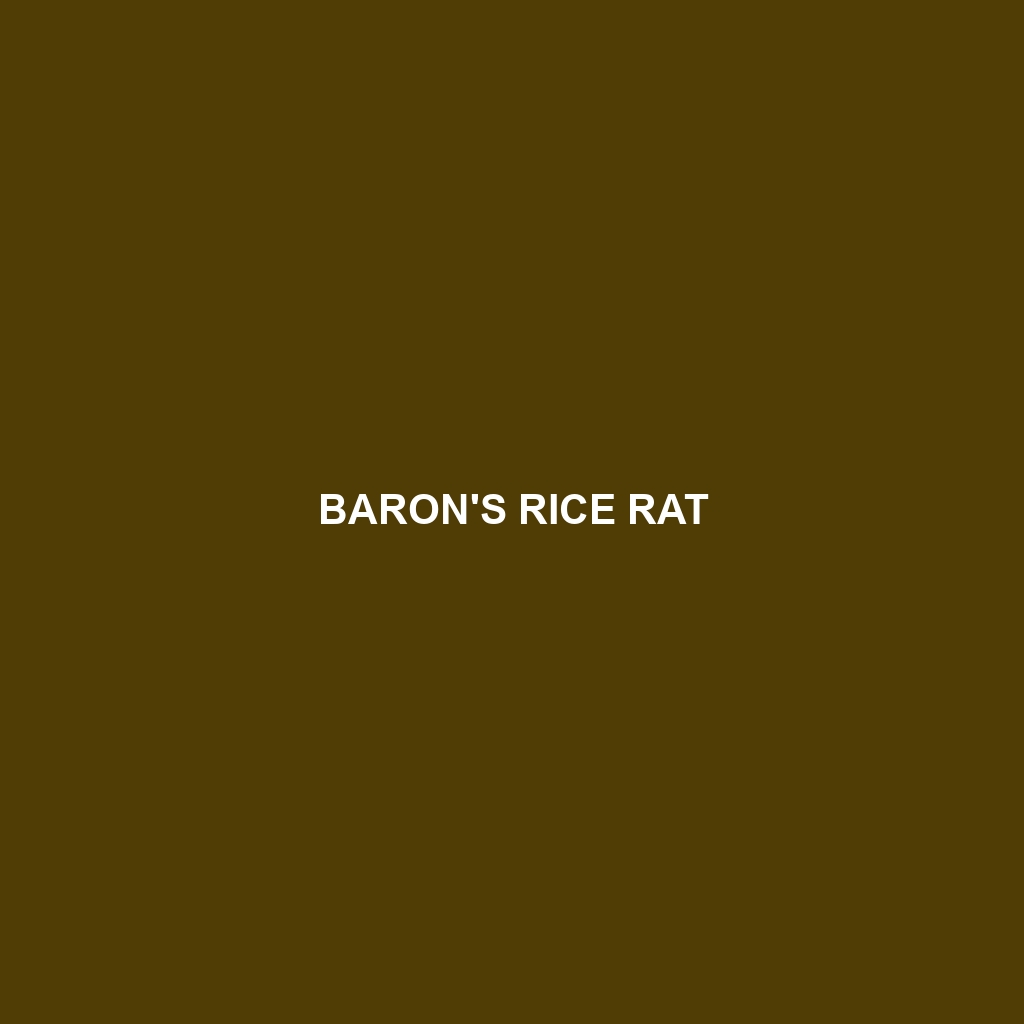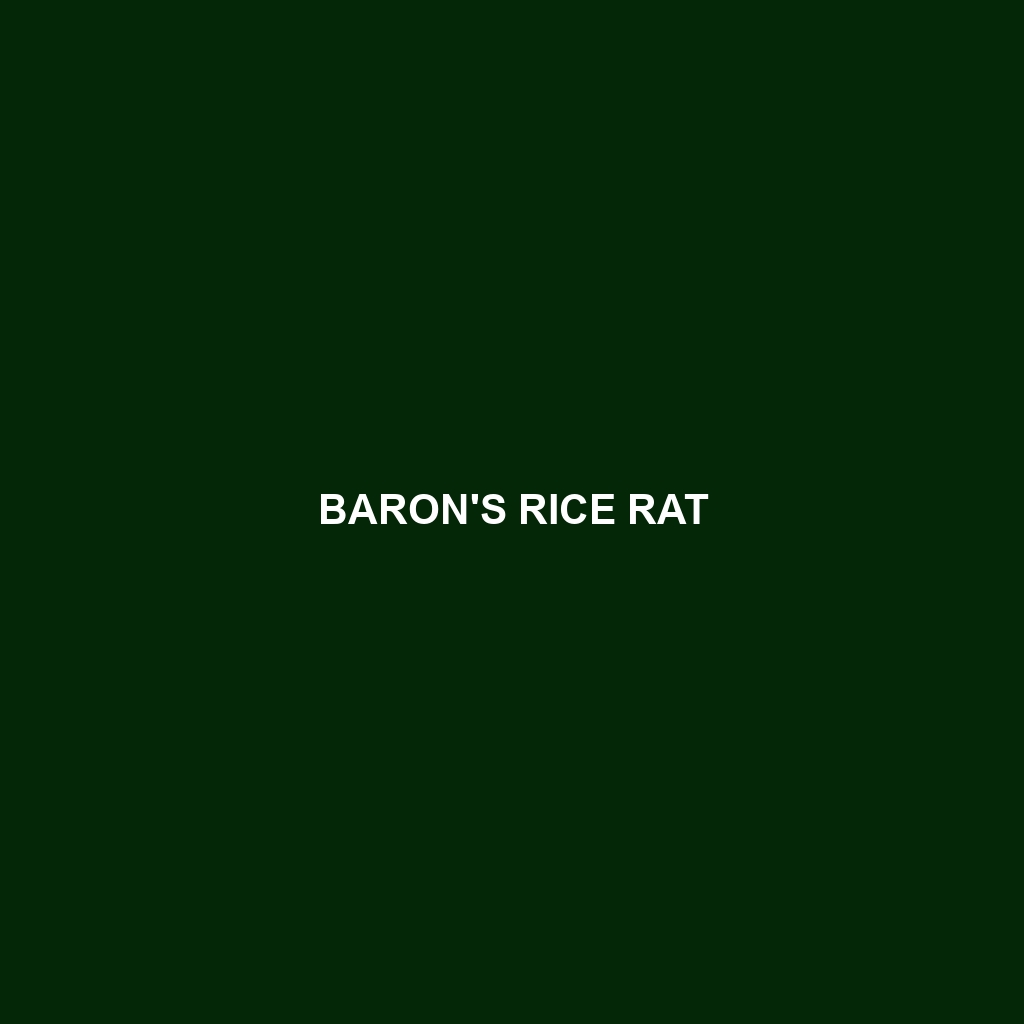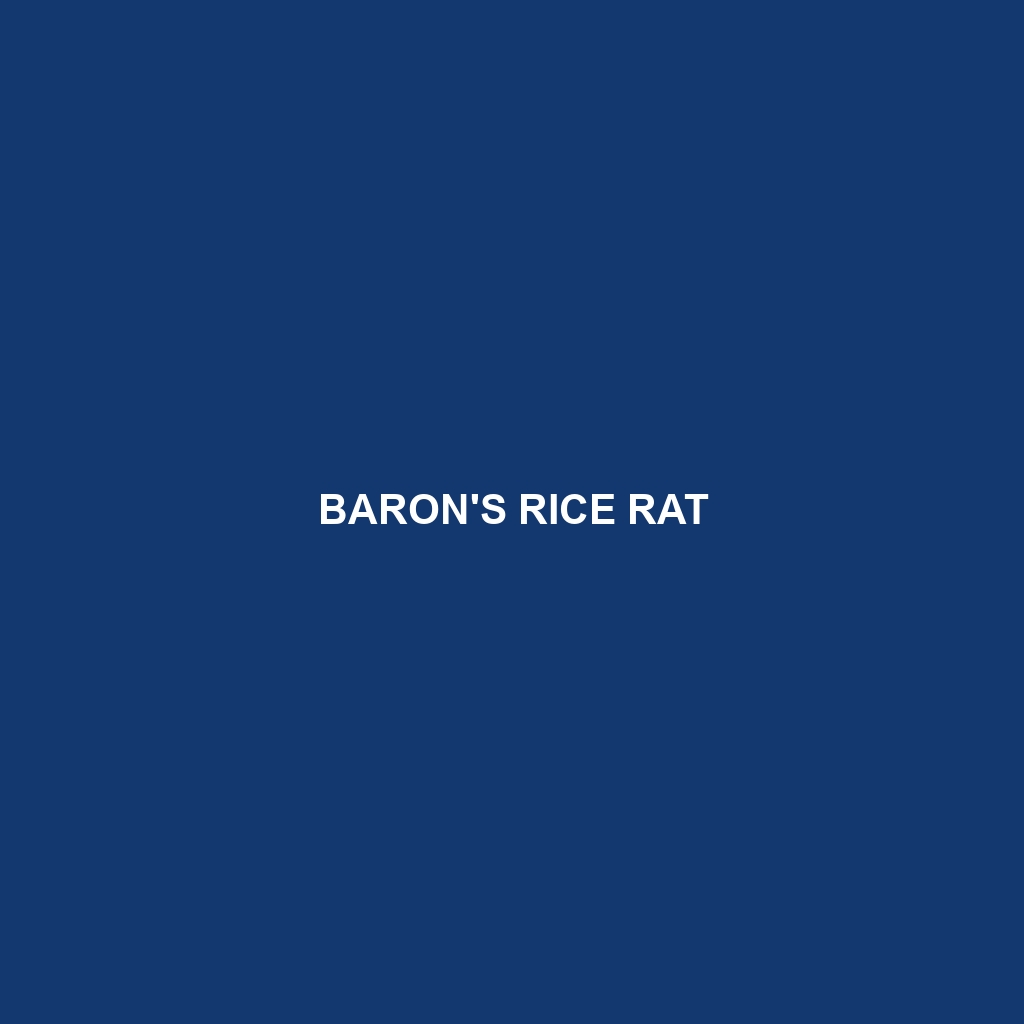Discover the fascinating world of the Goytaca Rice Rat, a versatile nocturnal creature thriving in South America's lush wetlands. With its unique adaptations, including sharp claws for climbing and a diet that supports seed dispersal, this vulnerable species plays a crucial role in maintaining its ecosystem. Learn about its habitat, behavior, and the conservation efforts essential for its survival.
Tag: Brazil
Goytaca Rice Rat
Discover the fascinating world of the Goytaca Rice Rat, a versatile nocturnal creature thriving in South America's lush wetlands. With its unique adaptations, including sharp claws for climbing and a diet that supports seed dispersal, this vulnerable species plays a crucial role in maintaining its ecosystem. Learn about its habitat, behavior, and the conservation efforts essential for its survival.
Langguth’s Rice Rat
Explore the intriguing world of **Langguth's Rice Rat** (*Oryzomys langguthi*), a vulnerable species native to the wetlands and rice fields of southeastern Brazil. With its agile movements, omnivorous diet, and unique adaptations for swimming, this nocturnal rodent plays a vital role in its ecosystem as both a seed disperser and prey. Discover the challenges it faces due to habitat loss and the importance of conservation efforts to protect this remarkable species.
Maracaju Rice Rat
Discover the Maracaju Rice Rat (*Oryzomys megacephalus*), a fascinating rodent native to Brazil's wetlands and grasslands. This adaptable species, characterized by its sandy-brown fur and nocturnal behavior, plays a vital role in its ecosystem through seed dispersal and soil aeration. Despite its ecological importance, the Maracaju Rice Rat is considered Vulnerable due to habitat loss from agricultural expansion, underscoring the need for ongoing conservation efforts.
Langguth’s Rice Rat
Explore the intriguing world of **Langguth's Rice Rat** (*Oryzomys langguthi*), a vulnerable species native to the wetlands and rice fields of southeastern Brazil. With its agile movements, omnivorous diet, and unique adaptations for swimming, this nocturnal rodent plays a vital role in its ecosystem as both a seed disperser and prey. Discover the challenges it faces due to habitat loss and the importance of conservation efforts to protect this remarkable species.
Marinho’s Rice Rat
Discover the unique Marinho's Rice Rat, a medium-sized rodent native to Brazil's coastal wetlands. With its impressive swimming abilities and role as a vital seed disperser, this species thrives in marshy ecosystems, adapting beautifully to its environment. Learn about its diet, behavior, and the conservation challenges it faces in our latest blog post.
Baron’s Rice Rat
Discover the intriguing world of the Baron's Rice Rat, a fascinating rodent native to the wetlands of South America. From its excellent swimming abilities and unique burrowing habits to its vital role in maintaining ecological balance, this species faces challenges due to habitat loss and environmental degradation. Learn more about its physical characteristics, diet, and conservation status in our latest blog post.
Baron’s Rice Rat
Discover the intriguing world of the Baron's Rice Rat, a fascinating rodent native to the wetlands of South America. From its excellent swimming abilities and unique burrowing habits to its vital role in maintaining ecological balance, this species faces challenges due to habitat loss and environmental degradation. Learn more about its physical characteristics, diet, and conservation status in our latest blog post.
Baron’s Rice Rat
Discover the intriguing world of the Baron's Rice Rat, a fascinating rodent native to the wetlands of South America. From its excellent swimming abilities and unique burrowing habits to its vital role in maintaining ecological balance, this species faces challenges due to habitat loss and environmental degradation. Learn more about its physical characteristics, diet, and conservation status in our latest blog post.
Baron’s Rice Rat
Discover the intriguing world of the Baron's Rice Rat, a fascinating rodent native to the wetlands of South America. From its excellent swimming abilities and unique burrowing habits to its vital role in maintaining ecological balance, this species faces challenges due to habitat loss and environmental degradation. Learn more about its physical characteristics, diet, and conservation status in our latest blog post.
